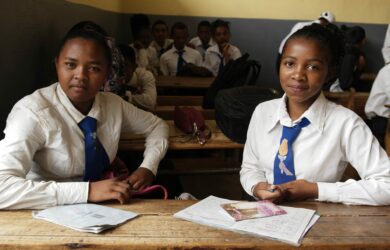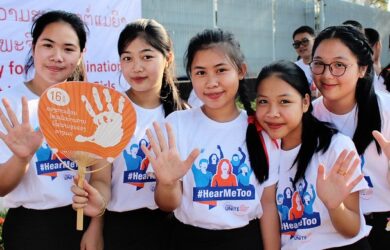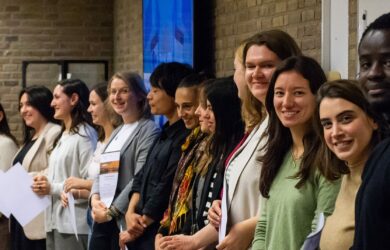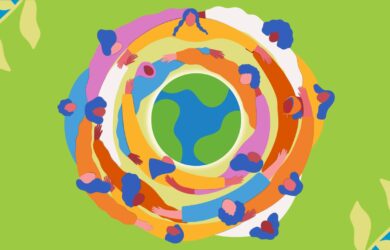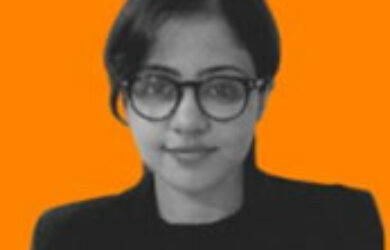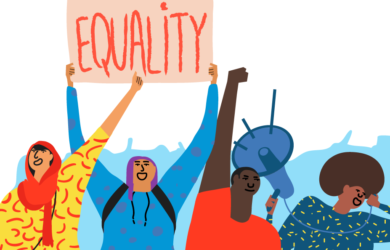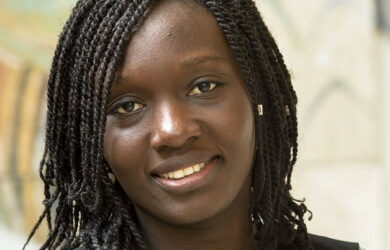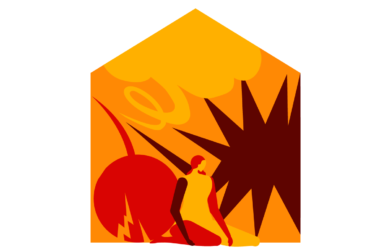- ABOUT US
- RESEARCH
- EDUCATION
- The Graduate School
- PhD Programme
- MSc Programmes
- Capacity Development
- News
- Design and Evaluation of Public Policies (DEPP)
- Design and Evaluation of Innovation Policies (DEIP)
- Evidence-Based Policy Research Methods (EPRM)
- Migration Management Diploma Programme (MMDP)
- Moving the Migration Policy Agenda Forward (MMPAF)
- Online Courses
- Short Courses (Masters)
- Tailor-made programmes
- UNU-MERIT, ITU Academy Training Centre
- Alumni
- Academic Funding
- NEWS
- EVENTS
- PUBLICATIONS
- LIBRARY
Ghana’s free high school policy is getting more girls to complete secondary education – study
22 March 2024
By Victor Osei Kwadwo (researcher and lecturer, UNU-MERIT) and Rose Camille Vincent (Assistant Professor, Utrecht University) Education drives economic growth and individual well-being. Secondary education, in particular, plays a crucial role. In recent decades, this recognition has encouraged several African countries to make secondary education free. One example is Ghana’s Free Public Senior High School (FreeSHS) policy, initiated in 2017. The policy aimed to remove cost barriers to secondary ...
Continue Reading →How can policymakers support the elimination of gender-based violence?
24 November 2023
3 questions with our expert Julieta Marotta for the International Day for the Elimination of Violence against Women According to UN Women, almost one in three women and girls have been “subjected to physical and/or sexual intimate partner violence, non-partner sexual violence, or both, at least once in their life.” And yet, just 5 percent of government aid is focused on tackling this issue. In commemoration of the International Day for the Elimination of Violence against Women, which falls on 25...
Continue Reading →Can public policy design help close the gender gap?
16 November 2023
Highlights from UNU-MERIT’s Public Policy MPP Conference 2023 By Victor Osei Kwadwo, researcher and lecturer at UNU-MERIT On 8 November 2023, UNU-MERIT played host to thought-provoking discussions at our annual Public Policy MPP Conference, a key fixture on our MSc in Public Policy and Human Development (MPP) academic calendar. This year’s theme, ‘Gender and Public Policy: Navigating the Equality Dilemma,’ brought together students and staff to delve into the complexities surro...
Continue Reading →UNU-MERIT Champions Women In and Outside the Classroom
08 March 2022
A joint post by Dr Julieta Marotta & Abigail Daley “Because women have an incredible amount of power that should not be ignored when it comes to building a sustainable future.” International Women’s Day gives us a yearly moment to reflect on gender equality and remind ourselves of our progress and the progress we still need to make. The Master of Science programme in Public Policy and Human Development (MPP), with the support of UNU-MERIT, emphasises its commitment to gender equality by taki...
Continue Reading →Best paper award: Gender attitudes in the Arab region
15 June 2021
Two researchers from UNU-MERIT have won this year’s Best Paper Award from the Journal of Economic Psychology. The winning article, ‘Gender attitudes in the Arab region – The role of framing and priming effects’ was co-authored by among others Micheline Goedhuys and Eleonora Nillesen. Using survey data to study sensitive topics can lead to biased results. For example, direct survey questions on non-sensitive information, including ownership, already present the challenge of random and systematic ...
Continue Reading →Fourth time lucky: How tech can empower businesswomen across Latin America and the Caribbean
18 March 2021
This series tracks news and views from our ‘Evidence-Based Policy Research Methods’ (EPRM) course. Many participants work at the highest of levels, both nationally and internationally, including for other sections of the UN system. In normal times, they come to the City of Maastricht in the Netherlands for this unique blended learning programme, covering a total of three weeks in class and 10 weeks online. … In this blog post, I discuss the gender gap in the LAC region and explain how digi...
Continue Reading →Alumna wins IMF Youth Fellowship Contest
15 March 2021
In late 2020, the International Monetary Fund launched a Youth Fellowship Contest to give aspiring young leaders a chance to share their views on COVID-19 responses and global efforts to build back better – towards a greener, fairer and more inclusive recovery. Out of around 700 submissions from around the world, our EPRM alumna Krithiga Narayanan – a multi-platform journalist from India – was chosen to be one of 26 IMF fellows from 25 countries. She joined a range of bloggers, journalists, comm...
Continue Reading →Why we care: International Women’s Day 2021
08 March 2021
Thinking ahead to International Women’s Day on Monday I recalled two pivotal resolutions the United Nations General Assembly had adopted within a week of each other in 1972, one (27/2951) on December 11 establishing the United Nations University and the other (27/3010), on December 18, proclaiming 1975 as International Women’s Year. It is instructive to put those two resolutions in the chronological context of the Education Amendments of 1972 in the United States, enacted barely six months earli...
Continue Reading →Women scientists at forefront of COVID-19 research
11 February 2021
Women researchers have been at the forefront of the fight against COVID-19, with female scientists across the globe playing pivotal roles, from advancing knowledge on the virus, to developing vaccines, treating patients and assessing the pandemic’s devastating economic and social impact. However, the health crisis has laid bare disparities in the scientific system. Girls are significantly under-represented in Science Technology Engineering and Mathematics (STEM) subjects at school, and women occ...
Continue Reading →Thanks to my research, I’m finally empowered to speak out against menstrual stigmatisation in Nepal
25 November 2020
A post by Riesa van Doorn, a student on our MSc. in Public Policy and Human Development … Today, on the International Day for the Elimination of Violence Against Women, let’s remind ourselves that violence against girls and women persists in every country in the world. According to the World Health Organization, gender-based violence affects one in three women in their lifetime. Before my Master’s programme in Public Policy and Human Development, the words ‘gender-based violence’ conjured ...
Continue Reading →Archives
Contact
UNU-MERIT
Boschstraat 24
6211 AX Maastricht
The Netherlands
T: +31 43 388 44 00
Email: info@merit.unu.edu
Boschstraat 24
6211 AX Maastricht
The Netherlands
T: +31 43 388 44 00
Email: info@merit.unu.edu
Partner sites
Newsletters
© 2024 UNU-MERIT | Maastricht University


